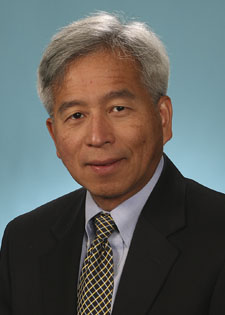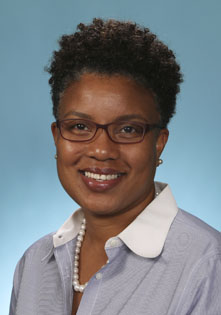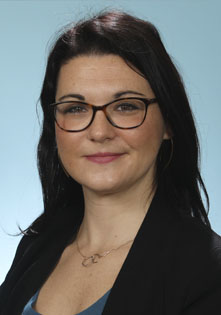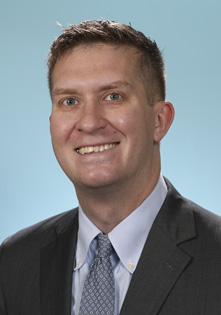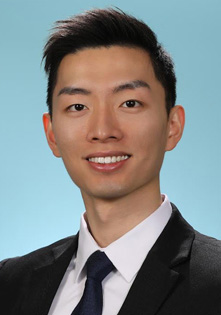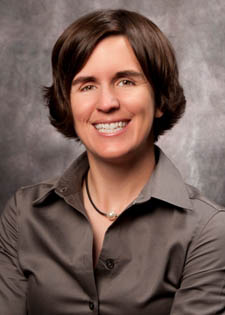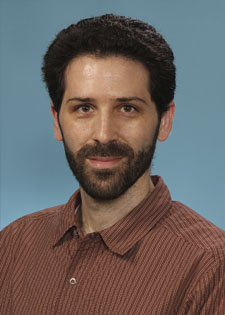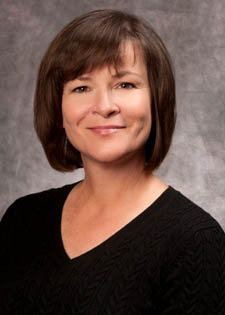PhD Mentors
In addition to meeting basic admissions requirements, there must be a fit between a candidate’s research interests and one or more RAPS PhD faculty members who are willing to guide the student’s program.
An available and interested mentor will be determined prior to admitting a student. The mentor will assist the student in forming a Research Advisory Committee (RAC). The mentor and RAC will play a primary role in the selection of courses, mentoring of research, independent study and preparation of the dissertation.
Applicants will be asked to identify one or more potential mentors from the following list in their application packet.
The RAPS Program will not be admitting a Fall 2024 class. We look forward to reviewing applications for entry in Fall 2025.
Program in Occupational Therapy Faculty Mentors
The following mentors have a primary faculty appointment in the Program in Occupational Therapy.
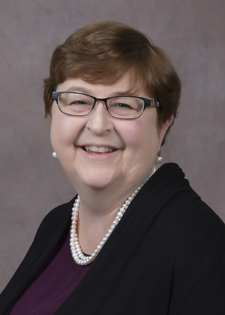
Lisa Tabor Connor, PhD, MSOT, OTR/L
Associate Dean and Director of Occupational Therapy
Elias Michael Professor of Occupational Therapy and Professor of Neurology
Dr. Connor focuses on research to quantitatively model recovery and community reintegration in stroke survivors. This work aims to understand the barriers and facilitators to participation in everyday life activities after stroke to guide and optimize the delivery of rehabilitation interventions. The overarching goal of this work is to create evidence-based, targeted interventions to enable people post-stroke to participate more fully in community life
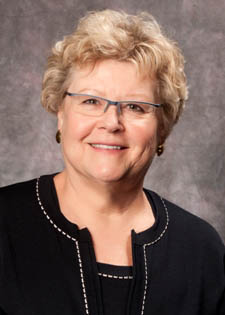
M. Carolyn Baum, PhD, OTR, FAOTA
Professor of Occupational Therapy, Neurology and Social Work
Dr. Baum's research focuses on understanding the factors that must be included to support the daily occupations of adults and older adults as they seek to live as independently as possible with chronic neurological conditions, particularly executive function.
Chih-Hung Chang, PhD
Professor of Occupational Therapy and Medicine
Dr. Chang’s research focuses on the integration of methodology and technology to advance patient outcomes assessment and management across the continuum of care. He is contributing to a new discipline called “Clinical Infometrics” that is a synthesis of measurement sciences, predictive analytics, evidenced-based medicine, and informatics to guide clinical decision making in real time and to improve symptom and disease management over time.
Erin Foster, PhD, OTD, OTR/L
Associate Professor of Occupational Therapy, Neurology and Psychiatry
RAPS PhD Director of Graduate Studies
Dr. Foster's research focuses on cognition and its relevance to daily function and well-being among people with chronic neurological conditions. Her studies employ rigorous translational approaches to understand functional cognition, occupational performance and participation in these conditions and to develop and test complex behavioral interventions to support them. This work generates knowledge to guide the development of more comprehensive and effective rehabilitation programs for people with neurological disorders and cognitive dysfunction.
Kelly Harris, PhD, CCC-SLP
Assistant Professor of Occupational Therapy and Surgery (Public Health Sciences)
Dr. Harris’ research examines the interdependence of chronic disease, child development, and educational outcomes for youth in urban and suburban contexts, and the use of dissemination and implementation science to improve health and educational equity. Using mixed methods, geospatial analysis, and implementation science, her work incorporates neighborhood and environmental factors to examine health disparities, inequity, and educational outcomes among youth, specifically among populations with sickle cell disease and asthma.
Chronic Disease, Development and Educational Outcomes Research Laboratory
Catherine Hoyt, PhD, OTD, OTR/L, FAOTA
Instructor in Occupational Therapy, Neurology and Pediatrics
Dr. Hoyt’s research focuses on identifying methods to screen children with sickle cell disease for developmental delays and developing a referral program to early intervention. With improved methods for early identification, more children can be referred to, and take advantage of, beneficial therapeutic interventions during critical years of neural development.
Brian Johnson, PhD, OTR/L
Assistant Professor of Occupational Therapy and Neurology
Dr. Johnson’s goal is to investigate the neural mechanisms underlying motor skill learning, including the acquisition, consolidation, retention and generalization of skills, and to translate these findings to enhance and/or develop interventions to improve function and independence of individuals with neurological diagnoses. His laboratory utilizes several methods, including human behavior, surveys, neuroimaging and neuromodulation.
Jessica Kersey, PhD, OTR/L
Instructor in Occupational Therapy and Neurology
Dr. Kersey’s research focuses on enhancing community and social participation and social health outcomes among people with acquired brain injury. She examines a broad range of social and environmental factors that influence outcomes, including the social, financial/economic, systems/policy and physical environments. Her research focuses on the development and testing of community-based interventions that leverage social learning and skill practice to improve participation outcomes. Dr. Kersey’s research is heavily informed by stakeholder perspectives, driving her use of community-engaged research methods.
Stephen Lau, PhD
Assistant Professor of Occupational Therapy and Neurology
Dr. Lau’s research is committed to developing accessible, precise and effective rehabilitation in self-management, health promotion and participation enhancement among stroke survivors living in the community. He seeks to understand the dynamic relationships among sleep disturbances, mood impairment and cognitive dysfunctions following stroke and develop evidence-based behavioral interventions that effectively prevent and mitigate stroke symptoms and improve participation in meaningful daily activities.
Kerri Morgan, PhD, OTR/L, ATP
Assistant Professor of Occupational Therapy and Neurology
The focus of Dr. Morgan’s research is to generate empirical knowledge helpful for guiding community-based and person-based interventions that improve the participation of people with mobility impairments. Her work ranges from community-based participation studies to basic mechanistic studies of biomechanics of the upper extremity for manual wheelchair users during propulsion. Earlier in her career, Dr. Morgan assisted with the development testing of standardized measures that assess a person’s with a disability quality of participation in major life activities and the environmental facilitators and barriers impacting participation.
Benjamin Philip, PhD
Assistant Professor of Occupational Therapy, Neurology and Surgery (Plastic and Reconstructive)
Dr. Philip’s research program is engaged in translational science that bridges scientific discovery and rehabilitation via a two-pronged mission: understanding how the brain controls movement, especially for unimanual action; and applying that knowledge to improve rehabilitation of patients with nerve damage, stroke, or other motor disabilities.
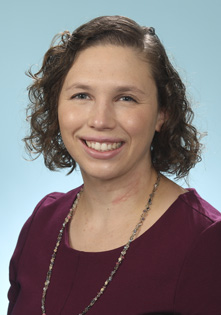
Jaclyn Schwartz, PhD, OTR/L, FAOTA
Assistant Professor of Occupational Therapy and Neurology
Dr. Schwartz’s research addresses the public health crisis of poor medication adherence, which affects half of all medication consumers. The goals of her research program are to 1) understand the mechanisms of medication adherence in people with disabilities and 2) to design and test interventions to help people with disabilities better take their medication as prescribed. Dr. Schwartz uses a mixed methods approach to her exploratory and clinical trials work to advance the field of medication adherence.
Susy Stark, PhD, OTR/L, FAOTA
Professor of Occupational Therapy, Neurology and Social Work
Dr. Stark’s work in the community focuses on the development and implementation of evidence-based behavioral interventions to prevent falls and improve community participation. Her federally and privately funded studies explore how functional decline and environmental barriers interact to influence the performance of frail older adults with chronic conditions. The interventions she develops from these studies allow older adults to age in place independently and safely at home.


